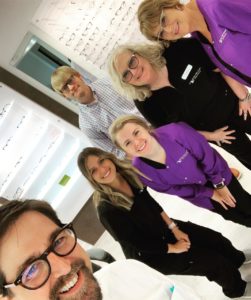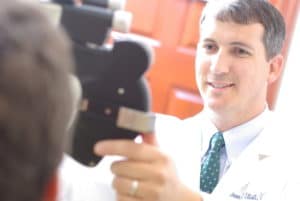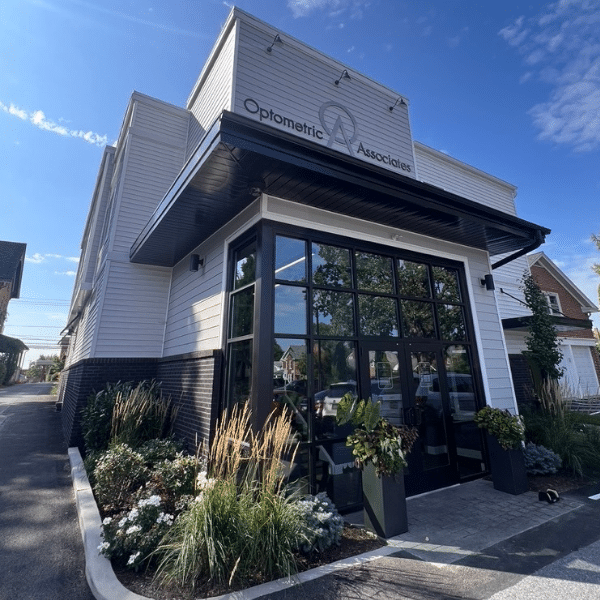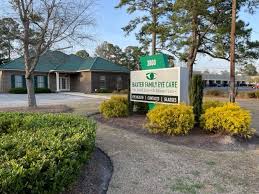For practice owners across the country, the third week of March is one they will never forget. News of a spreading pandemic turned into solid guidelines from the Centers for Disease Control to limit non-essential health care services, especially “routine eye exams” across the U.S.
The drumbeat was picked up by state and local authorities as state and county governments enacted their guidelines and private optometry practices came to a grinding halt. The “year of the eye exam” turned into a nightmare for small business owners.
“We are in the business of helping private practices thrive,” according to Rick Omohundro, president of Professional Vision Group. “As March unfolded we were scrambling to stay abreast of a dynamic and frightening scenario.”
“We were getting calls, texts, and emails day and night, every day as practice owners came to realize the implications of the shutdown,” Rick added. “We knew that we had to shift our priority to helping them get the resources they needed to stay afloat.”
One of the first challenges faced was defining “routine.” Not surprisingly, each practitioner brought their unique perspective of what is and isn’t essential and routine. New protocols and extra precautions were implemented and normally well-booked spring schedules started coming to a halt. Impacts on revenues in March varied depending on demand on the schedule and the size of the accounts receivable pipeline. April saw revenue slow to a trickle by as much as 80-90%.
“It was a learning experience that I don’t care to relive,” Dr. Chris Owens, co-owner of Carolina Center for Eye Care in the Triad area of North Carolina said. His three locations and five providers that relied on a steady stream of patient care was challenged to the core. “We had to shift from managing growth to surviving.”
 He threw himself into the details of the business, looking at every expense, every process, and every motivation.
He threw himself into the details of the business, looking at every expense, every process, and every motivation.
“We have a lot of mouths to feed and it is a huge responsibility,” Dr. Owens said.
Most practices were forced to do what they had never imagined and most feared. Lay off most of a high-performing workforce.
“We are always in hiring mode,” Dr. Steven Elliott, CEO of Volunteer Eyecare in Knoxville said. “To layoff people was a new and uncomfortable scenario. We consider everyone an essential part of our team and we genuinely care about their well-being. It boggled my mind to consider the financial, psychological, and physical safety of our people in this crisis.”
Dr. Elliott relied heavily on his leadership team which included his PVG consultant Chris Morris. “I don’t think we could have navigated these unknown waters without Chris’s help,” he said. “He was in our ears constantly coaching us through the emotional and practical matters of a partial shutdown.”
“This was a new experience for all of us,” Chris said. “The frustrating part was the constantly changing and often inaccurate information that was coming from the media, government, professional organizations, and social media. We were faced with sifting through the facts and offering the best help and guidance that we could minute by minute.”
 Each state was affected differently as well. Some states saw strong urging by local professional organizations to follow guidelines, some never heard from their governing bodies. As the crisis wore on it became clear that each business owner was on their own to adapt, survive, and bounce back from this crisis.
Each state was affected differently as well. Some states saw strong urging by local professional organizations to follow guidelines, some never heard from their governing bodies. As the crisis wore on it became clear that each business owner was on their own to adapt, survive, and bounce back from this crisis.
“As we are thankful for our heroes, I wish to mention mine,” Dr. Howard McFarland, owner of McFarland Optometry in Greensboro said. “I believe my PVG consultant Bob Tatum is the very best. He has advised me every step of this COVID-19 journey as well as listened to all of my grumblings and rants. I know that without Bob and the rest of PVG, I would not be able to recover from this current situation. My appreciation to Bob and all of PVG.”





